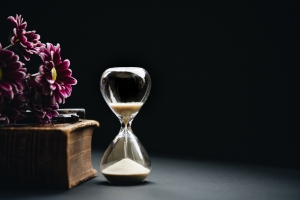Starting a Meditation Practice with Time – Heather Demetrios
Are you a pantser or a plotter? Me, I’m a little of both. I like to have a bit of a plan going into my books, but I think it’s important to leave lots and lots of breathing room for the characters to tell me what to do. They’re the boss of me. Still, I don’t feel totally comfortable just sitting down and having at a new book, either. I like to get a general sense of where this road trip is going before I begin, even if it’s just the general direction and who’s in the car with me. And, perhaps, what car I’m driving.
Whether you’re a pantser or a plotter when you’re starting a new book, I recommend taking a middle way with meditation (not surprisingly, since Buddhism is often called The Middle Way). You want to have intentionality and structure, but you also want to be super chill about the whole thing. In the next few posts, I’m going to be getting into the practicalities of setting up and actually beginning a meditation practice. Once we get through that, we’ll be able to go deeper into how this practice can support your writing life.
Time: How Often, How Much, & When
One of the biggest stumbling blocks for my meditation students is time, so we’re going to start there because this idea of not having enough time to meditate, or simply feeling overwhelmed about the prospect of adding one more thing into your day, is what keeps a lot of people from the cushion. I want to start with the most important thing first: intention. Why do you want to meditate? But I feel like we can’t even get into that until we go over this very practical obstacle that seems to be in a lot of people’s way. And, hopefully, you read my first Mindfulness Monday post about why I began meditating, and it’s already got your wheels turning on this subject matter to begin with.
How Often
The general consensus is that it’s best to meditate every day, if only for five minutes. A few minutes is better than no minutes. I am terrible at this when I’m traveling or on deadline. Full transparency here. We’re all works-in-progress, are we not? But it’s true. I know that when I don’t meditate, I’m rough around the edges. I know that when I * do * meditate, I adult better in every sector of my life. Ergo: meditate every day. Make that your goal. That’s how the practice works best. If you only do week days, that’s a great start. Just meditating a couple times a week isn’t really gonna give you what you’re looking for. It * might * be a bit relaxing in the moment, but you won’t get lasting benefits, at least not to the extent you’d see otherwise.
How Long
Most serious meditators meditate about twenty minutes a day. This is the number across many mainstream traditions, give or take. Now, you don’t start there. You start where you are, with what you can. That will likely be five minutes. Then you work up to twenty. You can totally do more. According to many neuroscience studies, it takes about twelve minutes for a meditation session to start actually changing your physical brain. (The neuroscience data coming out on meditation is amazing, and I’ll be sharing boat loads of it with you over the coming months). So when I’m feeling really lazy, I do a 12-minute minimum.
When Should You Meditate?
In terms of when to meditate, most people find that first thing in the morning is best. The reason here is that, honestly, if you don’t do it first thing, it likely won’t happen. I speak both from personal experience and from hearing a bajillion other meditators say the same thing. I generally discourage people from meditating just before bed because the tendency to fall asleep during the session is pretty high, but this is a good option for people who really struggle with insomnia. But! I have found personally—and so have writers I’ve worked with—that meditating just before a writing session gives you a great boost in flow and focus. So for writers specifically, if you can arrange it so that you meditate just before your regular writing session, that could be ideal. So long as you actually do it. That’s the kicker.
Mini Assignment:
If you’re interested in getting started with meditation, I’d love for you to join me in the online course I’m teaching this September, Mindfulness Immersion for Writers. But whether or not you take the course, these are some things you want to think about as you embark on this journey:
- Have a good honest look at your schedule. When would be a time that you know you could consistently meditate? Yes, car mediation totally counts. I know several people who meditate while waiting to pick their kids up from school.
- Are you willing to give this a real go? What would you be willing to shift or give up or do less of to make time for meditation? Would you be willing to do it every day, or at least try your very best to?
- If you write at a specific time each day / week, would you be able to meditate beforehand to increase flow and focus?
- If you haven’t thought yet about why you want to start a practice, starting having a think on that, too—we’ll get into that more later.
Think of beginning your meditation practice just as you would a new book. There’s excitement, maybe some nerves. Some strategizing. Maybe a bit of sacrifice. But it’s worth it, right?
Here’s to your practice!
🙂 Heather
Bio:
Heather Demetrios (’14) is a young adult author, writing coach, and meditation teacher for writers. She’s the recipient of the Susan P. Bloom PEN New England Award and the author of several critically acclaimed novels, including Bad Romance and I’ll Meet You There. She’s the editor of the upcoming anthology, Dear Heartbreak: YA Authors and Teens on the Dark Side of Love, which features several VCFA faculty and alumni. She lives abroad in various locales, but you can always find her at Mindfulness for Writers and on Instagram (@HDemetrios). Come meditate with her online this September in her Mindfulness Immersion for Writers Course.
Photo credit: Zach Fehst





